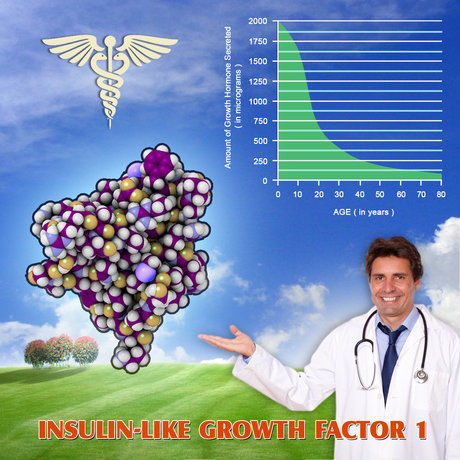 There is a lot of mythology surrounding masculinity and sexuality. It wasn't all too long ago that our myths were almost all we had to go on with regard to how our bodies work. While the body of science regarding Testosterone has grown significantly over the past forty years, some people cling to old ideas. Also, people cling to scientific hypotheses that don't always have merit because they sound right.
There is a lot of mythology surrounding masculinity and sexuality. It wasn't all too long ago that our myths were almost all we had to go on with regard to how our bodies work. While the body of science regarding Testosterone has grown significantly over the past forty years, some people cling to old ideas. Also, people cling to scientific hypotheses that don't always have merit because they sound right.
There are a lot of viral memes going around about Testosterone that create the image of a hormonal disaster on the horizon. For example, there's a post circulating that suggests that men produce half as much Testosterone as they did just twenty years ago. It argues that a 22-year-old man today has equivalent Testosterone to a 67-year-old from 2000. Could that be true? How could that be true?
Good news! This is highly unlikely. Unfortunately, men have seen a real decline in average Testosterone over the last generation. The most extreme claims tend to come from alternative websites that overblow the extent of the phenomenon. For example, the site American Greatness makes the claim that the average man now has an average Testosterone Level of 450 ng/dl, down from 605 ng/dl in 2000. They use this information to create the idea of a Testosterone crisis.
Two Testosterone Studies Measure Generational Changes in Testosterone Level
This meme gets its data from two sources published in 2007 and 2021. These articles investigated changes in Testosterone Levels across an extended period. The 2007 research compared men from 2002-2004 to guys from 1985-1987 and noted a 22% drop in Testosterone. The second study revealed a 25% drop from 1999 to 2016.
At first glance, this makes the meme seem almost true. I mean, 22% plus 25% is 47%. That's nearly 50%! There are some problems when you look into the details, though. Dr. Ranjith Ramasamy was the primary author of the recent study and takes issue with the assumption that men have lost half their Testosterone in twenty years. Dr. Ramasamy is a Urologist from the University of Miami medical school.
Can These Two Testosterone Studies Be Directly Compared?
Dr. Ramasamy explains that the meme takes real medical data and extrapolates it in a way that doesn't tell the real story. For one, the years don't add up. Neither study measures the specific time from 2000 to 2020. The most recent gap was 17 years and only noted a 25% decline over that time. Taking the two studies together gets you to 47%, but it is incorrect to assume that you can just combine the two numbers together and believe that is the net change over 31 years.
The age groups being evaluated in these studies overlap, meaning that there is a lot of double counting to get to the 47% number. A significant chunk of men were alive and eligible for both studies, making it very problematic to compare the results in this manner. The difference in Testosterone between the two studies could also be the result of different strategies to measure the hormone. There's no guarantee that both studies evaluated Testosterone Levels in the exact same way, negating the value of directly comparing them in this way.
Why Are Testosterone Levels Dropping In Men?
Thinking about the Low-T Epidemic in this way can detract from the real problems that men are experiencing in 2022. There's not a mysterious conspiracy that's led to dropping Testosterone Levels but a collection of widely acknowledged changes in the American male lifestyle that are leading to this overall decline in Testosterone Levels. Men have become significantly more sedentary over the last thirty years, and rates of diabetes, metabolic syndrome, and obesity have increased simultaneously, largely because of this change in activity level. There are other factors that can contribute, such as Endocrine-Disrupting Chemicals and other environmental factors, but they likely play a minimal role compared to the massive shift in men's diet and activity level since the 1980s.
Take Control of Your Testosterone!
That's not to say that we should take the results of either of these studies lightly. A generational shift of 22-25% is still a big problem, even if the changes can be adequately explained by science and sociology. After examining the evidence, it's clear that men have a lot of autonomy when it comes to taking control of their Testosterone Levels. Eating better and getting more active can help break the generational cycle of declining Testosterone. Furthermore, there are Men's Health Clinics and HRT Specialists throughout the country that can help men take control of their Hormone Balance and overcome Testosterone Deficiency!
Contact Us For A Fast And Professional Response

- Sermorelin — HGH Injections Versus Sermorelin and Testosterone Therapy Programs [Last Updated On: February 20th, 2025] [Originally Added On: September 20th, 2020]
- The scientific research benefits of testosterone treatment (TRT) [Last Updated On: September 5th, 2025] [Originally Added On: September 26th, 2020]
- Low-T Associated with Increased Risk of Atherosclerosis in Men with Type-2 Diabetes [Last Updated On: April 17th, 2025] [Originally Added On: October 20th, 2020]
- Health Changes Associated with Low Testosterone and Andropause [Last Updated On: June 15th, 2025] [Originally Added On: November 16th, 2020]
- Five Sports for Living Longer – Life Extension Through Sport [Last Updated On: March 16th, 2025] [Originally Added On: December 2nd, 2020]
- Covid-19 Mortality Risk Correlates With Low-T [Last Updated On: April 16th, 2025] [Originally Added On: December 17th, 2020]
- New Research Explores How Testosterone Influences Your Popular or Unpopular Opinions [Last Updated On: January 16th, 2025] [Originally Added On: February 22nd, 2021]
- Primary Versus Secondary Hypogonadism [Last Updated On: January 5th, 2025] [Originally Added On: March 15th, 2021]
- Testosterone Cypionate Information [Last Updated On: August 24th, 2025] [Originally Added On: May 5th, 2021]
- Testosterone Replacement Therapy May Help Cure Non-Alcoholic Fatty Liver Disease [Last Updated On: January 13th, 2025] [Originally Added On: June 5th, 2021]
- Hydraulic Fracturing: Another Environmental Pollutant That Affects Your Testosterone Levels [Last Updated On: January 7th, 2025] [Originally Added On: July 11th, 2021]
- Can Low Testosterone Be Cured? [Last Updated On: January 17th, 2025] [Originally Added On: September 5th, 2021]
- Low Testosterone (Low T) [Last Updated On: April 25th, 2025] [Originally Added On: September 7th, 2021]
- Low Testosterone – A Possible Link to Rheumatoid Arthritis Risk? [Last Updated On: January 21st, 2025] [Originally Added On: February 12th, 2022]
- The (Surprising) Necessity for Estrogen in Men [Last Updated On: January 22nd, 2025] [Originally Added On: March 1st, 2022]
- Anti-Aging Benefits from Hormone Balance [Last Updated On: January 18th, 2025] [Originally Added On: March 22nd, 2022]
- Tlando is on the Market – Oral Testosterone Replacement Therapy [Last Updated On: January 20th, 2025] [Originally Added On: June 9th, 2022]
- Tlando Low-T Treatment - A Safe and Effective Pill for Testosterone Deficiency [Last Updated On: August 17th, 2025] [Originally Added On: June 25th, 2022]
- Fatigue and Lack of Sexual Interest: Could it be Male Menopause? [Last Updated On: January 25th, 2025] [Originally Added On: June 27th, 2022]
- The Power of Testosterone—Improving Memory in Diabetics [Last Updated On: August 16th, 2025] [Originally Added On: July 12th, 2022]
- Kyzatrex Achieves FDA Approval—A Brand New Oral Testosterone Treatment [Last Updated On: August 18th, 2025] [Originally Added On: August 13th, 2022]
- How Testosterone and Social Context Influence Behavior [Last Updated On: August 30th, 2025] [Originally Added On: December 11th, 2022]
















